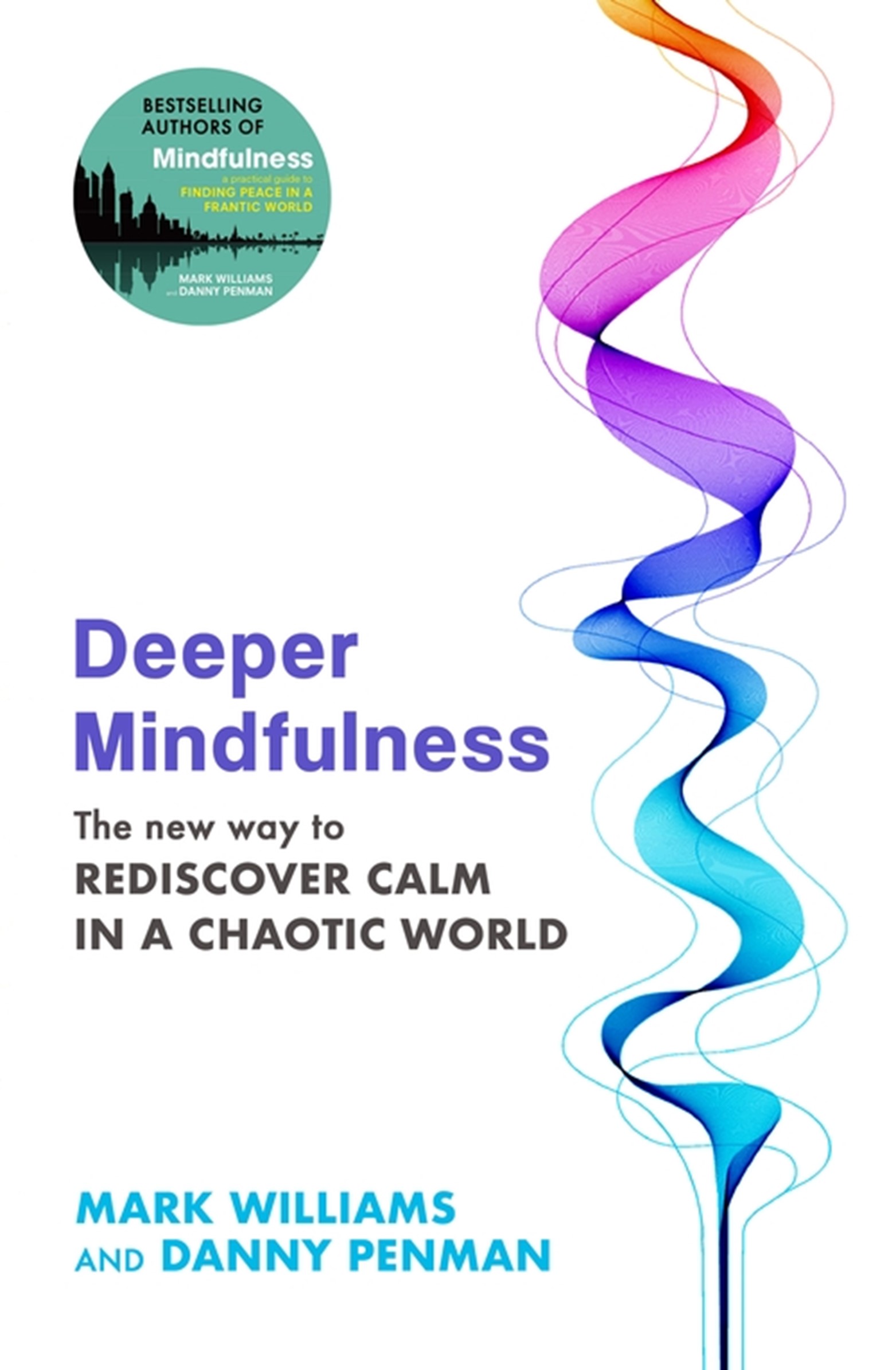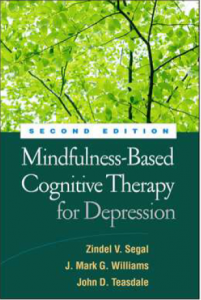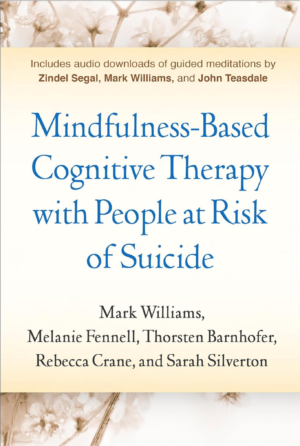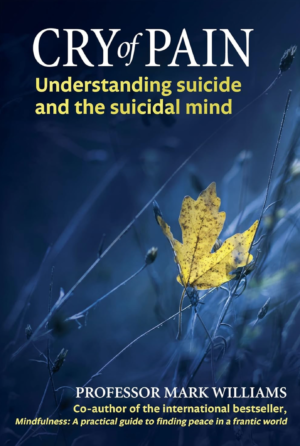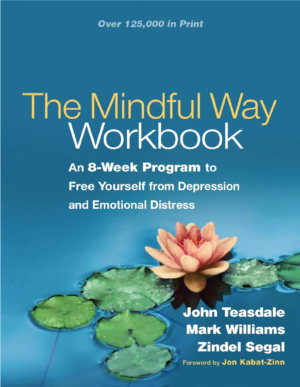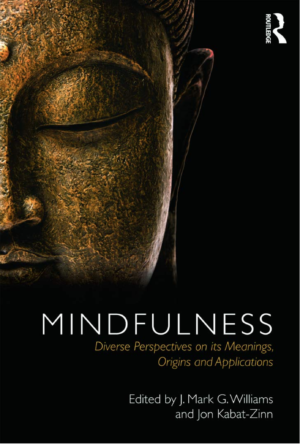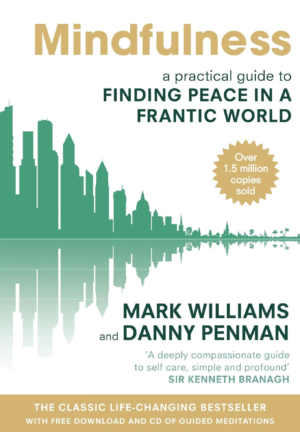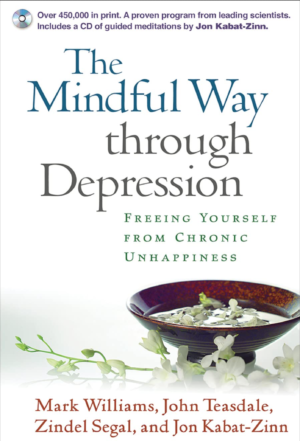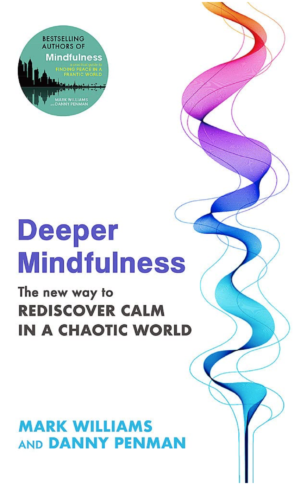
Mark Williams & Danny Penman
Informed by recent psychological findings that offer fresh insights into the way our attention works, how preferences are formed, and predictions are made, a new course has been developed that takes mindfulness practice to another level.
New findings reveal that every waking moment, our understanding of the world is dominated by predicting what actions we need to take next, coloured by what is called ‘feeling tone’ – that is, the moment-by-moment ‘read-out’ of whether any contact with mind or body feels pleasant, unpleasant, or neither. Based on this moment-by-moment ‘read out’, the body elegantly allocates its resources as it gears up for real or imagined action. This can prepare us well for action, but we can become exhausted without realising it.
Mark Williams and colleagues have published an article exploring the effectiveness of the Feeling Tone course from Deeper Mindfulness in the journal Mindfulness.
The new book Deeper Mindfulness gives the whole programme. It explains the recent science and gives you access to a complete set of new meditations to help you explore feeling tone.
This book walks you gently through the beautiful messy process of being human, and teaches you how and why all can be well” – Sir Kenneth Branagh
“This book is a remarkable combination of engaging stories, grounded scholarship, and powerful practices that conveys the power of mindfulness. The writing feels fresh and the meditations are spot on. As a clinician who teaches about trauma and meditation, I can also wholeheartedly recommend this work to anyone struggling with stress. It’s a book I’ve been waiting for, could hardly put down, and know will benefit countless people in the years to come.” – David Treleaven, PhD., author of Trauma-Sensitive Mindfulness: Practices for Safe and Transformative Healing
“Williams and Penman nail it when they describe how we can run from life (and ourselves) but we’ll never escape. Deeper Mindfulness holds true to its name: the authors expertly point out how to identify those critical driving forces in our lives –feelings, and how feelings feel—but importantly have provided a pragmatic path and clear steps that we can take to leverage our minds to live better lives. Based in deep wisdom and written with compassion.” -Judson Brewer MD PhD, New York Times Bestselling Author of Unwinding Anxiety and The Craving Mind.
“Many millions of people have learned mindfulness using apps, books or face-to-face mindfulness-based stress reduction and cognitive therapy courses. The science of mindfulness has come of age, suggesting for whom it is, and isn’t helpful, and how it helps people manage pain, live with chronic conditions, recover from depression, and more broadly enhance mental health. But learning mindfulness and mental health are like cultivating a garden, a mature garden takes lifelong cultivation.
“Deeper Mindfulness provides an 8-session guide for this further cultivation. It exquisitely draws out all the links in the chain that determine how our immediate sensory world becomes our lived experience and the stories we tell ourselves about ourselves, our lives, and the world. Its first genius is to point to the weakest link in the chain, vedana (feeling tone), the moment we label our sensory experience as pleasant or unpleasant. Its second genius is in skilfully guiding readers in how to break this link when it creates reactivity and chaos. In short, an elegant key to unlocking the chains that can enslave us. To the possibility to live with appreciation, kindness and compassion.
Mark Williams and Danny Penman write with a voice that is authoritative, imbued with warmth and whispers inspiration. It is accessible and engaging, while drawing extensively on the foundations of Buddhist and contemporary psychology and the very best mindfulness research and practice. It is easy to understand why their first book Mindfulness Finding Peace in a Frantic World is the best-selling book on mindfulness. This is a much-needed extension for all those who wish to go deeper.” – Willem Kuyken, Ritblat Professor of Mindfulness and Psychological Science, University of Oxford
